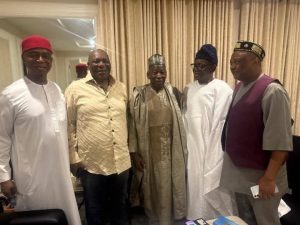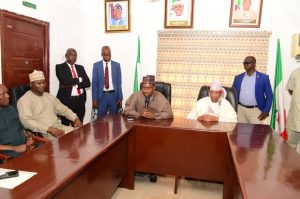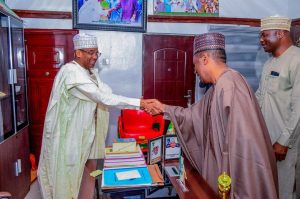News
UNCOMMON: Nominee rejects CBN board appointment in Nigeria
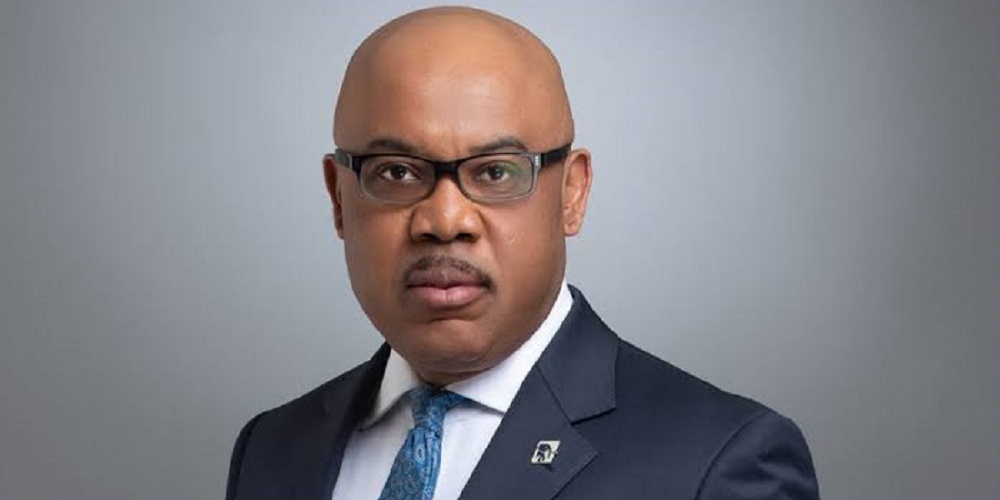
The Southeast nominee for membership of the Central Bank of Nigeria (CBN‘s) board of directors, Urum Kalu Eke, has rejected his appointment.
The Senate however confirmed the appointments of four others.
Rejection of appointment of membership of CBN board of directors by Eke from Abia state, came to the fore on Thursday during confirmation of appointments of four other nominees by the Senate.
The chairman of Senate Committee on Banking, Insurance and other Financial Institutions, Senator Adetokunbo Abiru (APC Lagos East), had in his report presentation for confirmation of the nominees by the Senate after screening exercise carried out on them, informed his colleagues that Mr Urum Kalu Eke didn’t attend the session.
He specifically informed the Senate that four other nominees – Mr Robert Agbede, Mr Ado Yakubu Wanka, Professor Murtala Sabo Sagagi and Mrs Muslimat Olanike Aliyu, appeared before the committee for screening and convinced it of their suitability for the appointments.
He thereafter, urged the Senate to confirm the appointments of the four nominees who attended the screening session and decline that of Kalu Eke who didn’t attend the screening exercise.
But for purpose of clarity, a member of the Committee, Senator Orji Uzor Kalu (APC Abia North), quickly rose to inform the Senate that Urum Kalu Eke being one of his constituents, told him that he was declining the appointment to avoid conflict of interest.
According to Senator Kalu, Urum Eke, is a consultant to the World Bank and other international financial institutions which would make him not have the required time to function well as a CBN director.
“Mr President, I’m a member of the committee that carried out screening on nominees forwarded to the Senate for appointment as members of Board of Directors of CBN by President Bola Tinubu”, Senator Kau said.
He added: “During the screening exercise, Urum Kalu Eke from Abia North, called me for not attending the session.
“He said as a consultant to the World Bank and other international financial institutions, he wouldn’t take the appointment to avoid conflict of interest.”
Who’s Urum Kalu Eke?
Urum Kalu Eke is a prominent figure in the Nigerian banking industry. He was born on October 17, 1966, in the town of Umuahia in Abia State, Nigeria. He obtained his Bachelor’s degree in accounting from the University of Nigeria, Nsukka, and subsequently went on to obtain a Master’s degree in business administration from the same institution.
Career
Eke has had an illustrious career in the banking industry, spanning over three decades. He began his banking career with Diamond Bank in 1992, where he worked in various capacities, including as an executive director and deputy managing director.
In 2014, he was appointed as the Group Managing Director/CEO of Fidelity Bank Plc, one of the top 10 commercial banks in Nigeria. Under his leadership, Fidelity Bank has made significant strides in the areas of digital banking, innovation, and sustainability.
Achievements
Eke has received numerous accolades and recognitions for his contributions to the banking industry. In 2020, he was named the Bank CEO of the Year at the BusinessDay Banks and Other Financial Institutions (BOFI) Awards.
He has also been recognized by various organizations for his leadership and achievements in the banking industry, including being named as one of the Top 50 CEOs in Nigeria by BusinessDay in 2019.
Personal Life
Eke is married with children and is known to be a private person who values his family time. He is also known for his philanthropic activities, including supporting education and healthcare initiatives in his community.
News
Senator Manu donates five operational vehicles to Taraba PDP(Photos)
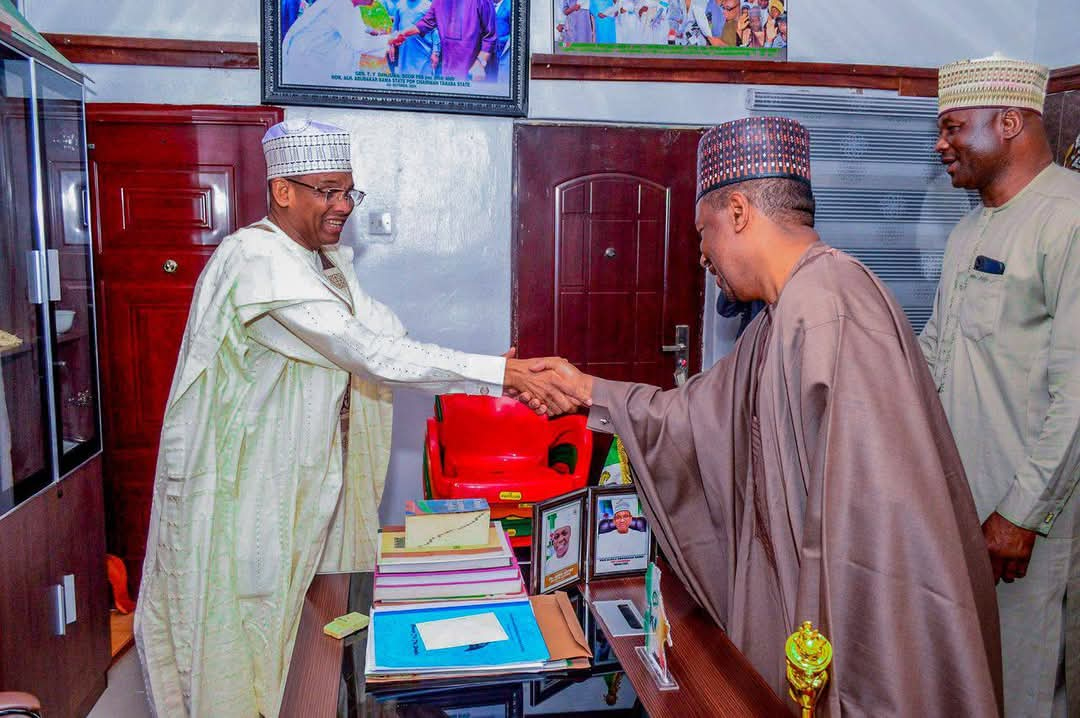
…hails emergence of Bawa as state chairman
The Senator representing Taraba Central Senatorial District Senator Manu Haruna on Sunday donated five operational vehicles to Taraba Peoples Democratic Party, PDP to enhance its operations.
Manu also seized the opportunity to congratulate the state Chairman, Hon Abubakar Bawa when he visited the secretariat in Jalingo last Sunday.
The former State Deputy Governor expressed his congratulations to Chairman Bawa and the state working committee for their election, emphasizing the importance of unity and progress within the party. He commended their commitment to strengthening the People’s Democratic Party (PDP) in Taraba State.
In a generous move to enhance the operational capacity of the party at the grassroots level, Senator Manu donated five vehicles — one for each Local Government Area (LGA) party chapter in Taraba Central.
This donation is intended to facilitate better coordination and outreach efforts within the party.
Senator Manu praised Hon. Abubakar Bawa for his dedicated efforts to elevate the PDP in the state, asserting that Taraba will always remain a stronghold for the party.
In response, State Party Chairman Alhaji Bawa expressed his heartfelt gratitude to Senator Manu for his thoughtful visit and generous donation. He acknowledged the impact of such contributions on the party’s progress and reemphasized the commitment of the PDP to serve the interests of the people in Taraba State.
News
Justice Minister, Fagbemi seeks support for govt’s national law reform initiative
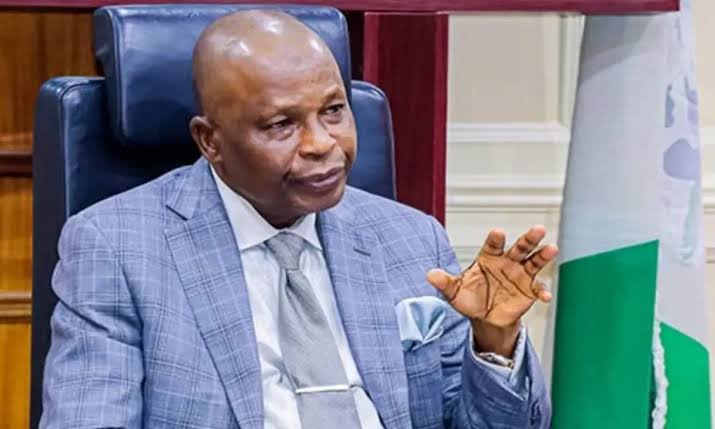
By Francesca Hangeior
The Attorney General of the Federation and Minister of Justice, AGF, Prince Lateef Fagbemi, SAN, has canvassed for greater efforts and commitments to the Federal Government’s aspirations to produce a workable legal framework for the country.
He charged the Committee put in place by the federal government to review, revise and consolidate the Laws of the Federation of Nigeria, LFN, to double the efforts and commitments to deliver on the mandate at the appointed time.
Fagbemi, a Senior Advocate of Nigeria, spoke on Monday in Abuja at the second retreat of the Committee put in place in October last year for the laws of the federation revision and reform.
The AGF while challenging the committee to be up and doing asked the members to remain united in purpose and steadfast in the resolve to produce a legal framework that is worthy of the nation’s aspirations.
He said the second retreat organized by the federal government was a strategic consolidation of the national law reform efforts and to provide an invaluable opportunity to come up with a better workable legal framework for the nation.
“Let me start by expressing gratitude to the Chairman, Co-Chairperson and members of the Committee for their selfless service and sacrifice, to ensure that this project is executed efficiently and effectively.
“The call to be part of this assignment is indeed a sacred that inevitably and positively affects the lives of individuals, government, businesses as well as citizens of this nation.
“The general purpose of law is to regulate human behavior by protecting lives and properties in society. The inauguration of the Committee on the 24th October, 2024 marked a historic milestone in our collective efforts to modernize, consolidate, and harmonize Nigeria’s body of federal statutes.
“The retreat successfully provides a clear framework for the structure and methodology of the revision exercise, oriented the 14 Working Groups tasked with reviewing specific legal subject areas, and fostered collaboration among key institutions and stakeholders on the project.
“Following the initial retreat, I wish to note that the Committee has recorded steady progress in its work.
“The Ministry has taken several measures to ensure that the assignment is delivered efficiently, including:training sessions for secretaries of the working groups to enhance documentation and coordination; technical meetings of the main committee and its various sub-committees; working sessions and deliberations among editors and reviewers; and ongoing technical collation of revised laws by the Secretariat.
“This second retreat is a strategic consolidation of our national law reform efforts and provides an invaluable opportunity to: review progress made since the first phase;
address any technical or structural challenges encountered during the collation process;
– Harmonize the output across working groups; and set the tone for the final stages of this important project.
“The next stage of the law review and consolidation process would include editing and proofreading the reviewed legislation, ahead of the final collation, production and printing of the laws of the federation.
“It is my conviction that these phases will be executed with even greater commitment by the Committee, with the support of stakeholders and development partners.
“I wish to commend the leadership of the LFN Committee, the Secretariat for its diligent coordination and day-to-day management as well as the Working Groups, Editors, and Reviewers, for their intellectual rigour and professionalism.
“Special gratitude to our development partners, particularly RoLAC, for standing firmly behind this national project.
“Let me urge all participants to use this retreat as a platform for robust engagement, peer learning, and practical collaboration.
“We must remain united in purpose and steadfast in our resolve to produce a legal framework that is worthy of our nation’s aspirations.
” I wish to express gratitude for your commitment to duty and I charge you to work in synergy and cooperation, in the overall interest of the nation”, the AGF said.
News
You must refund N300m, Rivers State tells NBA
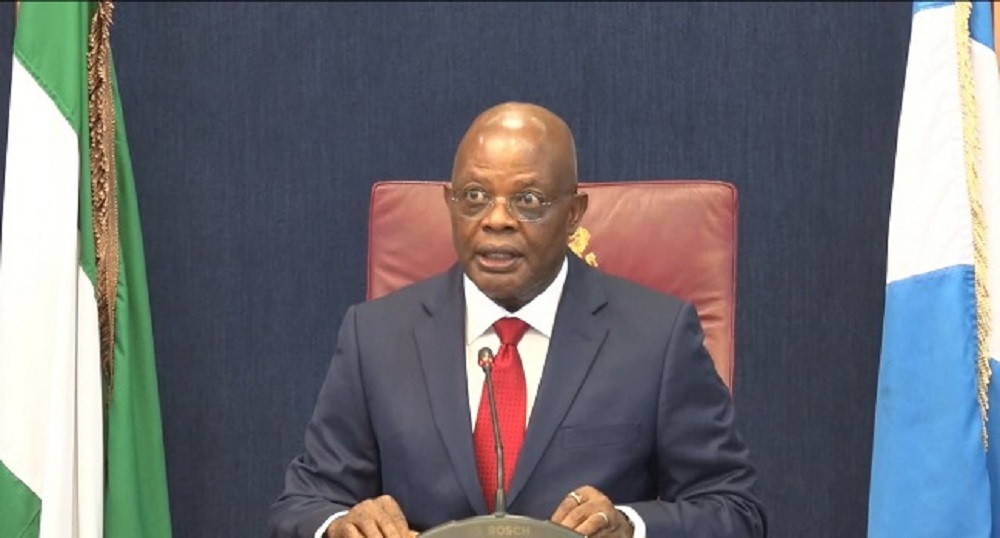
The Rivers State Sole Administrator, Vice Admiral Ibok-Ete Ibas (retd.), has replied to the Nigerian Bar Association regarding the reason for relocating its Annual General Conference from Port Harcourt to Enugu State.
Ibas faulted the reason cited by the NBA, describing it as misleading and uncharitable.
The Sole Administrator stated this in a statement issued in Port Harcourt on Monday by his media aide, Hector Igbikiowubo, and sent to newsmen.
He said while the NBA reserves the right to choose a venue for its conference, the association had yet to address the issue of the refund of the hosting rights paid by the state government for the conference.
The statement partly reads, “While we respect the NBA’s right to choose its conference venues, we find it curious that the association—despite its “principled position”— didn’t address the refund of the N300 million already paid by the Rivers State Government for the hosting rights of the 2025 conference.
“If the NBA truly stands on principle, it should demonstrate the same integrity by promptly returning these funds rather than benefiting from a state it now publicly discredits.”
It added, “The attention of the Rivers State Government has been drawn to the Nigeria Bar Association’s announcement dated 10th April 2025, relocating its 2025 Annual General Conference from Port Harcourt to Enugu.
The statement partly reads, “While we respect the NBA’s right to choose its conference venues, we find it curious that the association—despite its “principled position”— didn’t address the refund of the N300 million already paid by the Rivers State Government for the hosting rights of the 2025 conference.
“If the NBA truly stands on principle, it should demonstrate the same integrity by promptly returning these funds rather than benefiting from a state it now publicly discredits.”
It added, “The attention of the Rivers State Government has been drawn to the Nigeria Bar Association’s announcement dated 10th April 2025, relocating its 2025 Annual General Conference from Port Harcourt to Enugu.
-

 News20 hours ago
News20 hours agoAutonomy: 774 LGs challenge FG, states in court Tuesday
-

 News13 hours ago
News13 hours agoRivers women rally in support of state of emergency
-
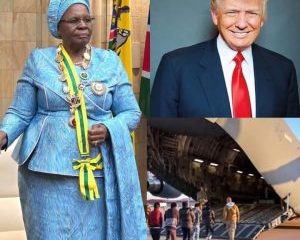
 News13 hours ago
News13 hours agoJust in: Namibia Moves to Deport Over 500 Americans in Bold Visa Policy Shift
-

 News8 hours ago
News8 hours agoYou must refund N300m, Rivers State tells NBA
-
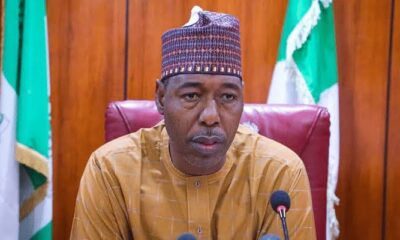
 News20 hours ago
News20 hours agoZulum orders arrest, offers house, scholarship to abused boy in viral video
-

 Politics11 hours ago
Politics11 hours agoBwala accuses Senator Ndume of plans to defect from APC
-
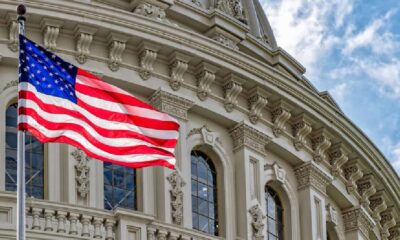
 Foreign9 hours ago
Foreign9 hours agoUS orders 30-day registration for all foreign nationals or face jail, deportation
-
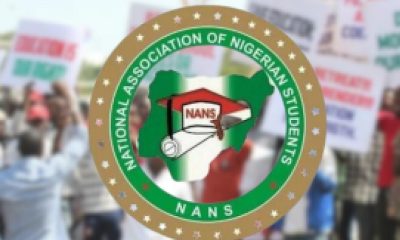
 News21 hours ago
News21 hours agoNANS criticize NASS over proposed bill to fine, jail non voters


